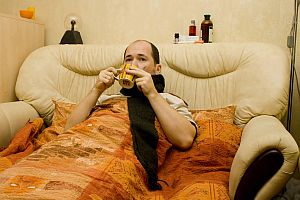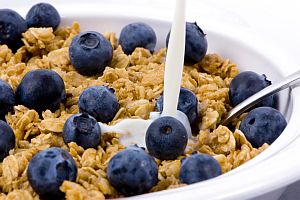Do We Really Get Sick More Often During the Winter?
 Although your mother may have admonished you when you to bundle up when you went outside during the winter to avoid getting a cold, science shows that this advice is actually pretty ineffective. While it seems to be true that people tend to get sick more often during winter, it has nothing to do with getting a chill. Scientists do have a few alternative explanations for this phenomenon.
Although your mother may have admonished you when you to bundle up when you went outside during the winter to avoid getting a cold, science shows that this advice is actually pretty ineffective. While it seems to be true that people tend to get sick more often during winter, it has nothing to do with getting a chill. Scientists do have a few alternative explanations for this phenomenon.
First of all, we tend to spend a lot more time indoors when it’s cold outside. Germs are spread far more easily in a crowd or within enclosed spaces. The more people in an enclosed space with a sick person, the more people with an opportunity to become infected. However, this doesn’t explain why children in crowded classrooms get sick more often during winter months, even when the number of students present in the classroom may not change much (or at all) from season to season.
One aspect of winter conditions is that the air is colder and drier. Dry air dehydrates our nasal passages and makes it more difficult for the mucus membranes in our respiratory system to trap and sweep away pathogens, which it typically does more effectively in a warmer, more humid environment. This is one reason why travelers often become ill after enduring a long plane flight– the atmosphere of the cabin is very dry. Add this to the combination we talked about before (lots of people in an enclosed space for a prolonged period of time), and it’s easy to see why a cold virus or flu virus would have a much easier time infecting more individuals in this sort of situation.
In addition, a study has shown that the flu virus in particular survives far longer in cool, dry conditions than in warm ones. Peter Palese and colleagues at the Mount Sinai School of Medicine in New York conducted an experiment on guinea pigs. They found that when guinea pigs were exposed to the flu virus they infected each other quite easily in cool, dry air, but when the temperature was 86°F the guinea pigs could not infect one another at all.
Another theory advanced by some scientists is that in winter our bodies are often low in stores of vitamin D due to a lack of sunlight. Vitamin D deficiency has been shown to cause a reduction in immunity. Given that much of the population in the developed world lives at latitudes where even direct sun is often weak in winter and that these same people are more likely to use sunscreen, it’s not surprising that many don’t have enough vitamin D. Studies show that flu season in different parts of the world correlates with cold weather and short hours of daylight. In the northern hemisphere, cold and flu season runs from November to March, and in the southern hemisphere from May to September. Meanwhile, the tropics have no cold and flu season at all.
Another contributor to a lowered immune system is sugar intake. Around the holidays, people not only find themselves gathering in large groups more frequently (think about office festivities, family celebrations, crowded shopping malls, etc.), but there are also more sweets to be had, which also works to suppress our immune system.
According to health experts, the best thing you can do to avoid winter colds and flu is to wash your hands frequently, since germ-covered hands are the most common way we infect ourselves. It’s not necessary to keep your house at tropical temperatures, but a humidifier may help reduce the drying out of your respiratory passages. Finally, taking a vitamin D supplement and keeping the sweets to a minimum may help reduce the number of times you get sick each year.






